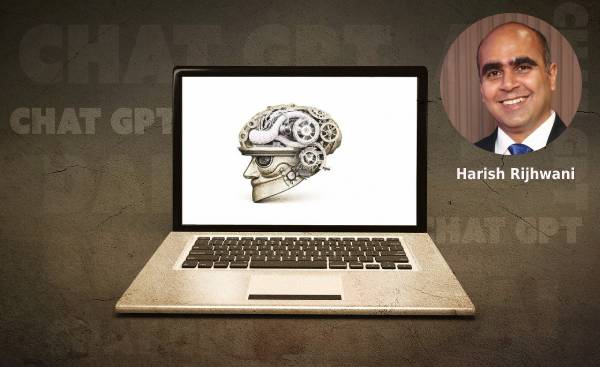
By Harish Rijhwani
Healthcare IT professional and passionate author
March 28, 2023: It's the final session of one of the subjects (Data Visualization) I teach my Healthcare Management students. The environment is tense but festive; One corner of the endless whiteboard lists the competitive points for the six groups in the class. While on the other end lies a gold-colored, new and shining, metallic trophy. Every subject I teach ends with the students competing for a prize, and they need to solve a crossword. The Game is humungous as it consists of nearly 60 to 70 questions covering various topics across the 30 hours taught to the students.
Some groups try to ask me for clues, while others are straightforward and ask me, "Sir, just one answer, please!!"
I stood tall, held my head high, and told them with conviction while withholding my smirk, "I think you should ask ChatGPT."
They happily took my advice and started their quest for answers. In a few minutes, their verdict was out, "Noooo!! We want a one-word answer but get a multi-para response; this is unfair."
In my mind, I smiled, but why in the world am I boring you with this story? You might have even considered the initial 150 words irrelevant because I am supposed to talk to you about the impact of ChatGPT on the education sector. So, why don't we jump into that area? We'll return to the initial part of the article down the line.
If I had to describe ChatGPT in one word, I would say it's a Chatbot, which is not new. The difference is that we have seen Chatbots on specific company websites trained on the organization's data. On the other hand, ChatGPT has used 45 terabytes of data. The Internet, as of 2021, had 44 zettabytes (trillion gigabytes) of digital data. So, technically speaking, ChatGPT still has to learn from a lot of data, but that doesn't make it any less.
Let us look at some benefits.
For students, this tool/gizmo can be like Harry Potter's magic wand or even Tom Riddle's diary, wherein you ask a question and, voila, you get an answer. In addition, students can get easy access to information. Written tasks could become more manageable (easy to generate instead); in the short term, it does look like a benefit, but is it? Because such assignments might become irrelevant at one point in the future.
What about the cons?
In a recent conversation with EduKitchen (Youtube), Noam Chomsky mentioned that the main contribution of ChatGPT towards education would primarily be plagiarism. Study.com surveyed 1000 students (Ref: Futurism), and 89% of them agreed they used ChatGPT to complete their essays/ written assignments.
But didn't plagiarism exist before the advent of ChatGPT? Let's take an example; I used to ask students to write journals (regarding the sessions in class) as one of their assignments. Students used to submit word documents; some wrote in detail, while some used to copy what they found on the Internet blindly. Some students were so lazy they would take a friend's assignment, rename the file, and send it to me. So plagiarism exists, and with the advent of ChatGPT, it might become easier for students to get away with the same.
Conclusion
The biggest challenge here is being over-dependent on technology which reduces our critical thinking ability. Hence, as educators, we must think about how to change how we teach certain subjects. For example, how can we make a subject more interesting rather than depend on rote learning? We can teach theoretical subjects by reading books and performing small skits to explain specific topics. In my ten years of teaching, I have leveraged gamification in terms of crosswords, dumb charades, Skits, and other ways to try and make my sessions different.
Students who don't find a subject interesting will always search for a way to work around the assignments. Today, we can find information anywhere, anytime. Hence, it is more important to focus on practical applications/learning methods rather than the traditional mechanism because ChatGPT is not going anywhere.
Harish Rijhwani’s 4th book: ‘9 to 5 Cubicle Tales’ has just been published